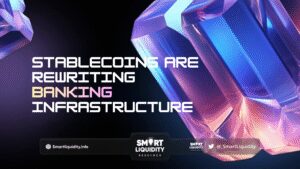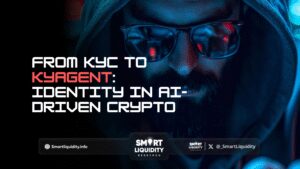NFT Utility Beyond Art: Gaming, Real Estate, and Identity


NFTs have gained popularity in the digital world, especially in art and collectibles. However, with the evolution of blockchain technology, their use is expanding into sectors like gaming, real estate, and identity management. This article explores the growing utility of NFTs beyond art, focusing on these emerging applications.
NFTs in Gaming: Revolutionizing Virtual Worlds
Gaming is one of the most exciting and expansive areas where NFTs are having a transformative effect. Traditionally, in-game assets—such as skins, weapons, and characters—were confined to the games themselves, with no ability to transfer ownership outside of the game. NFTs have broken these boundaries, enabling true ownership of digital assets.
Play-to-Earn (P2E) Games: NFTs have become a cornerstone of the Play-to-Earn model. Players can now earn NFTs by completing in-game achievements, which can then be sold or traded on secondary markets. This has shifted gaming from a purely entertainment-driven activity to a potential source of income. Games like Axie Infinity, Decentraland, and The Sandbox are prime examples of how NFTs enable players to own assets that hold real-world value.
Digital Collectibles: NFTs also serve as digital collectibles in games. In titles like Gods Unchained and Sorare, players can buy, sell, and trade unique collectible cards, avatars, or in-game characters that are verified on the blockchain. These NFTs offer gamers a sense of rarity and ownership, making the gaming experience more immersive and rewarding.
Interoperability Across Platforms: NFTs enable assets to be transferred across different gaming platforms. Players can own NFTs that are compatible with various games and ecosystems, allowing them to unlock new experiences without being confined to a single game’s environment. This creates an interconnected gaming universe that enhances player engagement and value.
NFTs in Real Estate: Digitizing Property Ownership
NFTs have also ventured into the real estate sector, offering a more efficient and transparent method of buying, selling, and leasing property. The concept of tokenizing real estate is becoming increasingly popular, as it simplifies the process of transferring ownership and reduces transaction fees associated with traditional real estate deals.
Tokenized Property: Real estate can now be tokenized into NFTs, allowing fractional ownership. This means that investors can own a share of high-value properties, making real estate investments accessible to a broader audience. For instance, platforms like RealT enable users to buy fractionalized ownership of real estate, with each token representing a share of the property.
Smart Contracts for Property Transactions: NFTs also utilize smart contracts to streamline property transactions. Through smart contracts, the buying and selling of property can be automated, reducing the reliance on intermediaries and increasing the speed of transactions. Additionally, blockchain’s transparent and immutable nature ensures that property ownership records are secure and accessible to all parties involved.
Virtual Real Estate: In addition to physical real estate, NFTs are also used in virtual worlds. Platforms like Decentraland and Cryptovoxels allow users to buy, sell, and develop virtual land, creating entirely new opportunities for virtual real estate investment. As the metaverse continues to grow, virtual real estate is becoming a thriving market, with NFTs acting as the proof of ownership.
NFTs in Identity Verification: Securing Digital Identities
One of the most promising use cases for NFTs beyond art is in identity management. As digital identities become more integral to our online presence, NFTs can offer a secure and immutable way to manage and verify these identities.
Decentralized Identity (DID): NFTs can be used to represent decentralized identities, where individuals control and manage their personal data without relying on central authorities. These NFTs could store encrypted personal information, including biometric data or proof of qualifications, and allow users to selectively share information with verified parties.
Proof of Identity and Credentials: NFTs can also serve as a digital version of traditional credentials like university degrees, certifications, or professional licenses. By issuing NFTs for these credentials, institutions can ensure the authenticity of the information, eliminating the potential for fraud or misrepresentation. For example, an NFT issued by a university could serve as verifiable proof of a graduate’s degree.
Privacy and Control: NFTs give individuals control over their data, allowing them to grant permission for its use in a secure and transparent manner. Unlike traditional forms of identification, NFTs are based on blockchain technology, making them tamper-proof and resistant to hacking. This provides users with a higher level of privacy and security in the digital world.
The Benefits of NFTs Across Sectors
The widespread use of NFTs in gaming, real estate, and identity management brings about a host of advantages that extend beyond the individual industries.
| Benefit | Gaming | Real Estate | Identity |
| Ownership | True ownership of in-game assets and collectibles. | Fractional ownership of properties. | Control over personal data and credentials. |
| Interoperability | Transferable across different gaming platforms. | Tokenized properties accessible to more investors. | Secure and transparent identity verification. |
| Efficiency | Play-to-Earn opportunities. | Reduced transaction fees and faster processes. | Eliminates the need for third-party intermediaries. |
| Security | Immutable, verifiable game assets. | Transparent property ownership records. | Tamper-proof and hack-resistant digital identities. |
Challenges and Considerations
While NFTs offer promising utilities beyond art, there are several challenges and considerations to keep in mind.
Environmental Impact: The energy consumption of blockchain networks, especially proof-of-work systems, has raised concerns about the environmental impact of NFTs. While newer technologies like proof-of-stake are emerging to address this, sustainability remains a critical challenge.
Regulatory Issues: The legal framework around NFTs is still evolving, and their use in sectors like real estate and identity management could face regulatory hurdles. Governments will need to establish clear guidelines on how NFTs can be used in these sectors to prevent misuse and ensure security.
Scalability: As the demand for NFTs grows, scalability remains a concern. Many blockchain networks face limitations in terms of transaction speed and cost, which could hinder widespread adoption in sectors like real estate and gaming.
Conclusion
NFTs have proven themselves to be more than just a digital art trend. They are shaping the future of gaming, real estate, and identity management, providing new opportunities for ownership, investment, and security. As the technology matures, NFTs will likely become an integral part of various industries, enabling seamless digital experiences and unlocking new forms of value in the process.
By embracing the utility of NFTs beyond art, we are witnessing the beginning of a new era in the digital world, one where virtual assets have real-world implications. Whether it’s owning a piece of virtual land, verifying credentials, or earning rewards in a gaming ecosystem, NFTs are transforming how we interact with the digital world.




